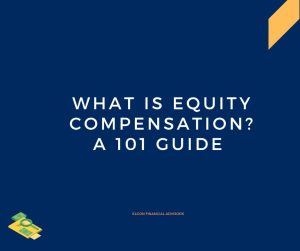Photo by Eunice Lituañas on Unsplash
Since making a career switch from high-tech to the finance planning industry, I’ve had a lot of my friends and colleagues throw this question my way, expecting a nice, packaged answer similar to the tech space.
For example, as a developer, it was easy to explain and quantify exactly what I did. Write programs that would take input (data), do something with that data (transform it) and generate a different kind of output.
We can apply the same kind of logic to the planning industry (input, transform, output), but I don’t think it’s as linear as that and it’s also a little more complex. I am going to try and keep this as short as possible.
Money and the management of it is very personal, and yet it’s something that affects everybody, what we do with it can end up shaping our lives in different ways. At the core of a financial planning relationship are two entities (you and the financial advisor), and the role each plays, defines the relationship.
Your Role in the Financial Planning Relationship
You know yourself best. You know your family best. You know what makes you tick. You have goals that are unique to you and your family. You know where you are coming from – if there was ever a job opening for “who knows you best” – you’d have no competitors!
A Financial Advisors Role in the Financial Planning Relationship
A Financial Advisor brings two broad skill sets to the relationship.
Technical Knowledge
These includes all the technical subjects that one is likely to encounter in the personal planning industry. Some of the subject areas are investing, college funding, taxes, estate planning, retirement and insurance.
The knowledge can be acquired via training / school, experience (working with older advisors), conferences etc. (Going into the specifics is a future topic).
Behavior Management
Once we have identified your goals above and created a plan to start working towards achieving those goals, behavior management is crucial to helping you stay the path, stay focused and stay motivated.
Behavioral finance is a growing and a fascinating field that goes into the study of psychology and biases behind money decisions – it explains why we choose certain paths and discard others, why we make certain money decisions, even when we know the consequences are not ideal.
Everyone has a money script rooted deeply in their upbringing and their cultural beliefs. Being an immigrant and having grown up in a different environment adds a different outlook to the picture. Some of these scripts unless understood can wreck good financial planning and ruin a lot of good intentions.
A good financial advisor will partner with you in helping you clarify your goals and define a desired future state (yours), apply his or her technical knowledge as part of helping you chart a way forward, and then partner with you (behavior management) in staying laser-focused on that goal.
Financial planning is a journey, a marathon, don’t embark on this journey alone.
If you would like to discuss the above or any other financial issues, please schedule a free consultation.
To stay on top of Elgon’s blog posts by email, please sign up here.

6 Things to Do
When Starting A Job on H-1B Visa
You are starting a new job on a work visa, there are some critical things, that will set up for financial success in the first 3-6 months. Download the free guide below for the detailed list!
We never spam. By signing up you’ll also receive access to future resources right to your inbox.
Disclaimer: This article is provided for general information and illustration purposes only. Nothing contained in the material constitutes tax advice, a recommendation for the purchase or sale of any security, investment advisory services, or legal advice. I encourage you to consult a financial planner, accountant, and/or legal counsel for advice specific to your situation. Reproduction of this material is prohibited without written permission from Jane Mepham and all rights are reserved. Read the full disclaimer here.

Recent Articles

What Is Equity Compensation? A 101 Guide For Immigrants
What is equity compensation? This is a 101 guide for immigrants and foreign nationals on work visas with equity compensation. I address NSO’s, ISO’s, RSU’s ESPPs and Performance Stock Units.
In this intro guide – we discuss the characteristics of each, the tax treatment of each type and what to watch out for with each type.

Where Is The Best Place To Invest Short-term Money Now?
Your short-term money (0 -3 years) is very different from your long term money (10-15 years +).
The priority is to keep that money liquid, and easily accessible. Next you want that money to keep up with inflation. Now if you can can get some interest of top of that, that will be awesome.
In this post we describe all the place you can invest your short-term money and how to think about your emergency fund.

How To Prepare For A Layoff On A Work Visa
Good financial planning will ensure you are well-prepared for when bad things happen.
If you are on a work visa, and you get laid off – you have 60 days to find another job or leave the country.
In this post, I provide a list of things you can do ahead of time to avoid having to scramble last minute if laid off.




